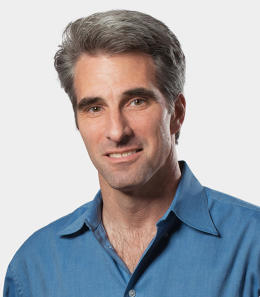Apple senior vice president of software engineering Craig Federighi has published an op-ed in the Washington Post defending Apple in its ongoing battle with the FBI over access to the encrypted iPhone of one of the San Bernardino shooters. Federighi makes the case that the standoff is not just about a single iPhone or terrorist attack, and the threat to personal privacy is just the “tip of the iceberg.”

“Your phone is more than a personal device,” Federighi wrote. “In today’s mobile, networked world, it’s part of the security perimeter that protects your family and co-workers. Our nation’s vital infrastructure—such as power grids and transportation hubs—becomes more vulnerable when individual devices get hacked. Criminals and terrorists who want to infiltrate systems and disrupt sensitive networks may start their attacks through access to just one person’s smartphone.”
Federighi said Apple works “tirelessly” to prevent new threats and fend off attacks, which he claims are ever increasing. He notes that in the last 18 months, hackers have breached the systems of the federal government, retailers, and banks, and, in the process, have made off with credit card numbers, social security numbers, and even biometric data.
That’s why it’s so disappointing that the FBI, Justice Department and others in law enforcement are pressing us to turn back the clock to a less-secure time and less-secure technologies. They have suggested that the safeguards of iOS 7 were good enough and that we should simply go back to the security standards of 2013. But the security of iOS 7, while cutting-edge at the time, has since been breached by hackers. What’s worse, some of their methods have been productized and are now available for sale to attackers who are less skilled but often more malicious.
The FBI, Apple says, has requested that the company create a so-called back door into the iPhone operating system that investigators could use to extract data from iPhones and iPads. But there’s no guarantee, Federighi wrote, that those back doors wouldn’t be a way in for hackers.
“Great software has seemingly limitless potential to solve human problems—and it can spread around the world in the blink of an eye,” Federighi said. “Malicious code moves just as quickly, and when software is created for the wrong reason, it has a huge and growing capacity to harm millions of people.”
Federighi ended the op-ed by noting that security is an endless race. “(March 10, 2016)’s best defenses cannot fend off the attacks of today or tomorrow. Software innovations of the future will depend on the foundation of strong device security. We cannot afford to fall behind those who would exploit technology in order to cause chaos. To slow our pace, or reverse our progress, puts everyone at risk.”
Apple will face the government in federal court on March 22. While the public and even presidential candidates are divided on the issue, Apple has received overwhelming support from the tech community, security companies, human rights organizations, and even the husband of one of the victims of the December 2015 San Bernardino shooting.
Fast Company , Read Full Story
(44)